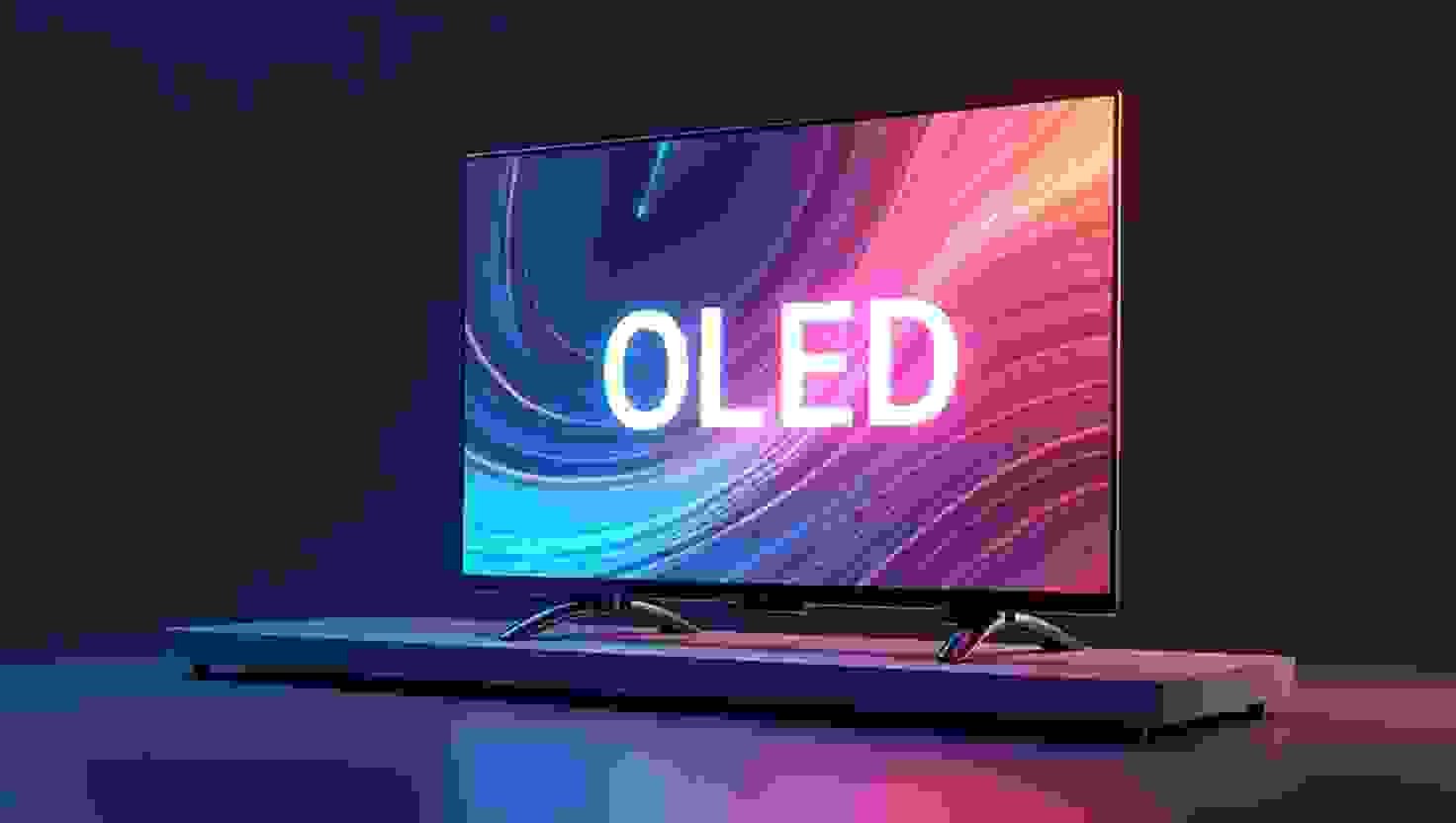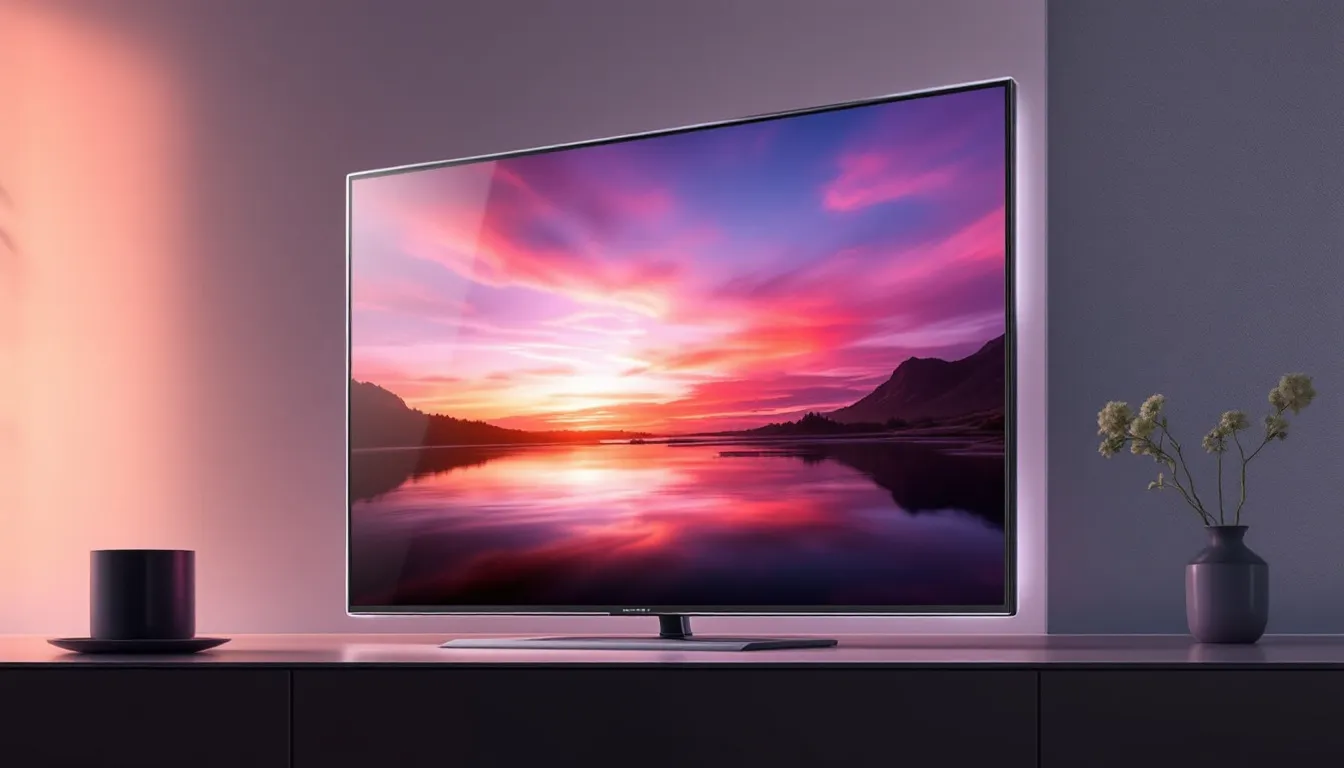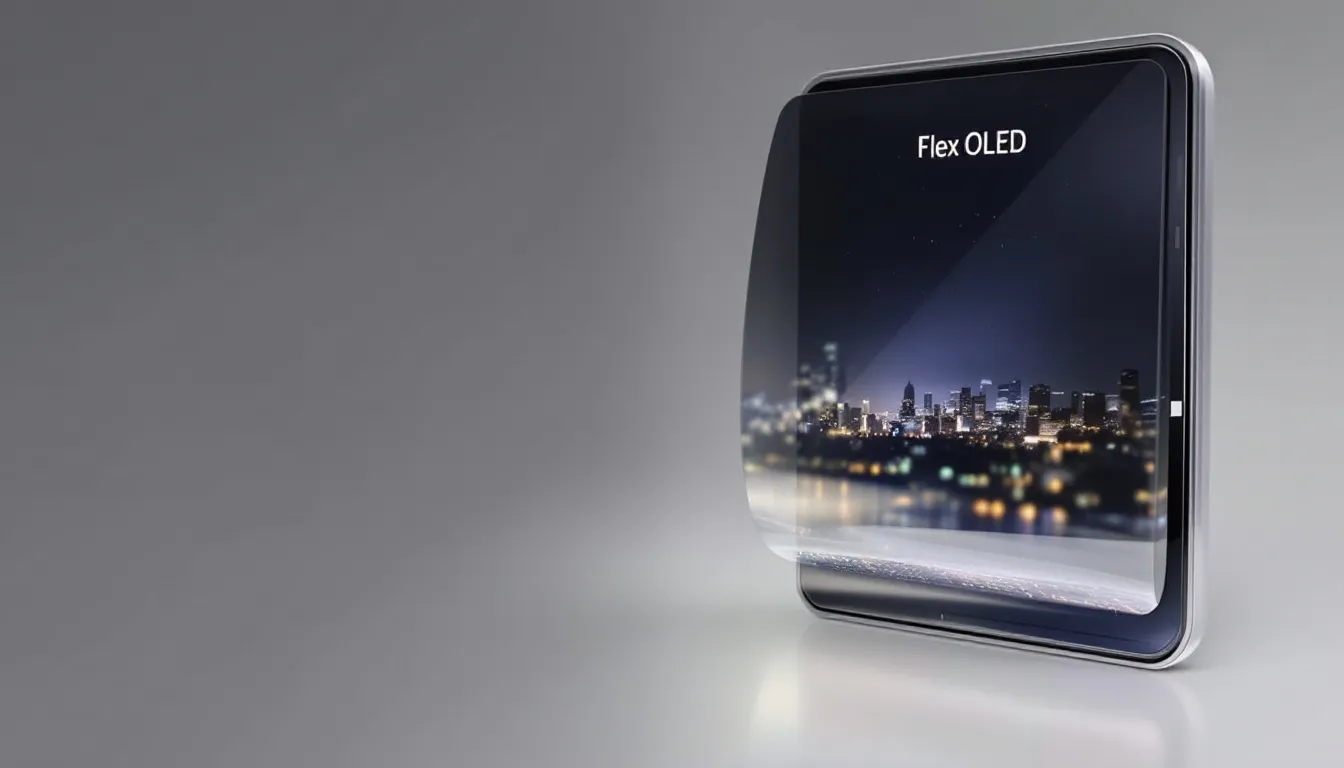Discover why Organic Light Emitting Diode TVs are the best in picture quality! Learn how OLED technology works,...

Organic Light Emitting Diode TV: The Ultimate Guide
Introduction: Why OLED TVs Are Revolutionizing Home Entertainment

If you've been researching premium televisions, you've likely come across Organic Light Emitting Diode TV —the undisputed kings of picture quality. Unlike traditional LCD displays, which rely on a backlight, OLED televisions use self-emissive OLED pixels that emit light individually, delivering perfect blacks, infinite contrast, and vibrant colours.
In India, where consumers increasingly demand high-end TV screens for movies, gaming, and streaming apps, OLED technology has become a game-changer. Brands like LG OLED TVs and Samsung Display dominate the market, pushing innovations like Dolby Vision, flexible substrates, and transparent OLEDs. For those considering cost-effective alternatives, understanding LED TV prices in India can provide valuable insights.
This guide will explore:
✔ How OLED displays work
✔ Key differences between OLED vs. LCD vs. QLED
✔ Best OLED TVs in India (2024)
✔ Future of OLED research and upcoming trends
What is an Organic Light Emitting Diode TV or OLED Displays?
An OLED TV is a flat panel display that uses organic materials and oled technology to produce white light when an electric current passes through them. Unlike LCD displays, which require a separate backlight, each OLED pixel generates its own light, allowing for superior image quality.
How Does OLED Technology Work?

The OLED tv panel structure consists of multiple organic layers sandwiched between two electrodes—an anode layer and a conductive layer. Here’s a breakdown:
-
Emissive Layer – The emissive layer consists of phosphorescent materials that emit light when electricity flows.
-
Organic Thin Films – These help convert electrical energy into visible light.
-
Hole Injection Layer & Electron Transport Layer – These layers regulate charge movement for optimal light emission.
When electric current passes through, the organic molecules excite and produce white light, which is filtered into red, green, and blue subpixels to create stunning display images.
OLED vs. LCD vs. QLED – Which is Best for You?
1. OLED vs. LCD: The Key Differences
|
Feature |
OLED TV Discover the differences between OLED and QLED TVs like those offered by Ridaex Future TV, featuring state-of-the-art technology and powerful performance ideal for any modern home entertainment setup. |
|
|---|---|---|
|
Backlight |
Self-emissive (own light) |
Requires backlight |
|
Black Levels |
Perfect blacks (pixels turn off) |
Grayish blacks (backlight bleed) |
|
Contrast Ratio |
Infinite |
Limited by backlight |
|
Response Time |
Near-instant (0.1ms) |
Slower (2-8ms) |
|
Viewing Angles |
Wide (no colour shift) |
Narrow (colour degradation) |
|
Power Consumption |
Lower (black pixels off) |
Higher (constant backlight) |
2. OLED vs. QLED: Which is Better?
-
QLED (Quantum Dot LED) – Uses a backlight with quantum dots for enhanced colour but can’t match OLED’s per-pixel dimming.
-
OLED – Superior contrast, faster response, and flexible substrates for curved displays.
3. Mini-LED: A Middle Ground?
Mini-LED improves local dimming over standard LCDs but still falls short of OLED’s precision.
Verdict: If you want the best picture quality, OLED TVs are unbeatable.
Best OLED TVs in India (2024)
1. LG OLED C3 Series (Best Overall)
-
4K Dolby Vision & HDR10
-
α9 Gen 6 AI Processor for upscaling
-
Low power consumption & high brightness
-
Perfect for gaming with 120Hz refresh rate
2. Samsung S95C QD-OLED (Best for Colour Accuracy)
-
Quantum Dot-enhanced OLED
-
Brighter pixels than traditional LG Display panels
-
Slim design with flexible substrates
3. Sony A95K (Best for Movies & Dolby Vision)
-
Master Series OLED with top-emitting OLEDs
-
Cognitive Processor XR for lifelike images
-
Acoustic Surface Audio+ (sound comes from the screen)
Advantages of OLED TVs
1. Perfect Blacks & Infinite Contrast
Since OLED pixels switch off completely, they achieve true blacks, unlike LCD displays where backlight bleed washes out dark scenes.
2. Ultra-Fast Response Time (0.1ms)
Ideal for gaming and fast-action movies—no motion blur.
3. Thinner & Lighter Design
No backlight means OLED televisions can be incredibly slim.
4. Wider Viewing Angles
No colour shift even at extreme angles.
5. Eye Comfort (Less Blue Light)
OLED lighting emits less blue light than LED lighting, reducing eye strain.

Future of OLED Technology
1. Transparent OLEDs
Imagine TV screens that turn into glass when switched off—transparent OLEDs are already in development.
2. Foldable & Rollable OLEDs
LG Display has showcased rollable OLED TVs, while Samsung Display experiments with foldable screens.
3. Improved Blue TADF Emitters
Current blue emitters degrade faster, but OLED research is enhancing longevity.
4. Higher Brightness & Efficiency
New phosphorescent materials and polymer OLEDs promise brighter pixels with lower power consumption.
Should You Buy an OLED TV in 2025?
If you want:
✔ The best picture quality (perfect blacks, vibrant colours)
✔ Future-proof tech (Dolby Vision, flexible OLEDs)
✔ Superior gaming performance (fast response, 120Hz)
Then yes, an Organic Light Emitting Diode TV is worth every rupee.
Best for:
-
Movie lovers (Netflix, Prime in 4K HDR)
-
Gamers (PS5, Xbox Series X)
-
Tech enthusiasts (cutting-edge display technologies)
FAQs About OLED TVs
Q1. Do OLED TVs burn-in?
Modern OLED panels have pixel refresh and logo dimming to reduce burn-in risk.
Q2. Are OLED TVs good for bright rooms?
Newer models like LG G3 and Samsung S95C have high brightness for well-lit spaces.
Q3. Which is better: LG or Samsung OLED?
-
LG OLED TVs: Best for movies & gaming.
-
Samsung QD-OLED: Brighter, more vibrant colours.
Q4. How long do OLED TVs last?
Around 100,000 hours (10+ years with normal use).
OLED is the Future
With advancements in OLED research, including blue TADF emitters, transparent OLEDs, and flexible substrates, OLED TVs are only getting better. Whether you choose LG OLED TVs, Samsung Display, or Sony, you’re investing in the pinnacle of display technologies.
Ready to upgrade? Check out the latest OLED televisions and upgrade your home entertainment system on Ridaex Store, Amazon, Flipkart



















Leave a comment